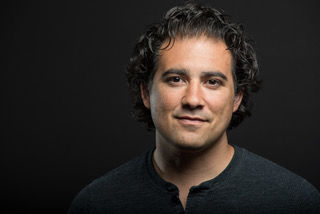Adolescence
Have You Been Infected by Other People's Emotions?
What we can learn from the Silicon Valley teen suicides.
Posted July 14, 2017

Science writer Lee Kravetz and his wife are moving into their new Palo Alto apartment in 2009. It’s summer, she’s working at Google and they’re expecting their first child. While unpacking boxes, suddenly they hear sirens screaming close by.
A student from nearby Gunn High School has just thrown himself on the tracks, killed by a passing train. Days later, there’s another suicide, this time a girl who’s just graduated with a scholarship to NYU. And so it begins. The strange contagion that will lead to nine inexplicable suicides, teenagers so full of promise, with stellar grades and impressive résumés. As his son is born, Lee shudders to think of the world he’s bringing him into.
Silicon Valley, the land of high tech entrepreneurs—computers, smartphones, startups, Google, Apple, Uber, Airbnb—and this strange and deadly contagion. What has caused it? What can be done?
Lee begins a desperate odyssey, traveling around the country, searching out clues, for his book Strange Contagion.
- He talks to Nicholas Christakis at the Human Nature Lab at Yale, learning that emotions are contagious.
- From Al Bandura’s social learning research at Stanford he sees how we acquire new behaviors by picking up social cues from the people around us.
- From Peter Gollwitzer, at the NYU Motivation Lab, he learns about primes—words and symbols in our environment that unconsciously program us with new thoughts and feelings.
Back home in Palo Alto, he sees Gunn high school students “feverishly working to impress college admissions officers by stacking their records with AP courses to get into the right classes, to earn the highest scores, to rack up the best accolades, to win the shiniest awards, to enroll in enough sports and activities” (Kravetz, 2017, pp. 183-184). He learns firsthand how extreme stress fills them and the atmosphere around them with feelings of inferiority, frustration, and shame, sees how they can become emotionally numb, keeping their feelings bottled up inside until they explode in acts of self-destruction.
As Lee discovers, we live in dynamic interaction with the people around us. Have you noticed how you feel energized around some people but exhausted and dragged down by others?
Social contagion can be positive or negative, reinforcing caring and compassion or cutthroat competition, shame, and inferiority. What effect does this powerful process have on your life?
- What social contagion is spreading in your own town, school, or workplace?
- What behaviors are being reinforced?
- And what can you do about it?
Now a psychotherapist, Lee Kravetz says “we can begin by becoming mindful of our emotions, the ones we’ve caught and the ones we’re spreading to others. The more we recognize the tell-tale signs of depression, for instance, or anxiety, sadness, or stress, both in ourselves and in others, the quicker we can reach out for help or offer help to struggling peers. In doing, we each become ‘strange contagion interrupters,’ stopping social contagions before they have a chance to spread much farther.”
“We can also harness positive social contagions, like happiness and resilience, that can counter the more harmful social contagions. Lastly, we can become mindful of the primes, or cues in the environment, that often promote contagious thoughts, behaviors, and emotions. Personal awareness and community-wide awareness," says Lee, "are the best treatments for social contagions” (Kravetz, personal communication, July 13, 2017).
Reference
Kravetz, Lee Daniel. (2017) Strange Contagion: Inside the surprising science of infectious behaviors and viral emotions and what they tell us about ourselves. New York, NY: HarperCollins
***********************************
Diane Dreher is a best-selling author, positive psychology coach, and professor at Santa Clara University. Her latest book is Your Personal Renaissance: 12 Steps to Finding Your Life’s True Calling.
Visit her web sites at http://www.northstarpersonalcoaching.com/ and www.dianedreher.com


